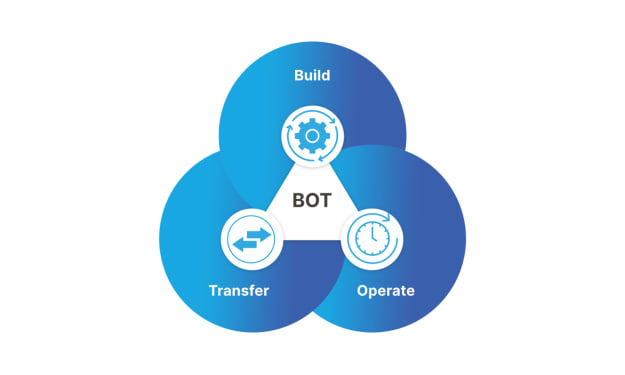DevOps for Full Stack Developers: Bridging the Gap Between Code and Deployment
Full Stack Development - Code, Create & Innovate

Introduction
In today's rapidly evolving world of software development, where rapid delivery and flawless execution are the benchmarks of success, DevOps stands at the forefront as a transformative approach. It serves as the bridge between the creation of code and its seamless deployment into production environments. In this article, we will explore how DevOps is not only relevant but also incredibly valuable for full stack developers. We will delve into the essential concepts, best practices, and real-world applications that make DevOps an indispensable skill for those who navigate both the frontend and backend of software development.
The Full Stack Developer's Role in DevOps
Full stack developers have a unique advantage in the DevOps landscape. Their responsibilities encompass both frontend and backend development, which ideally positions them to understand, contribute to, and optimize the entire software delivery process. They bridge the gap between development and operations as the best bridge builders in DevOps..
Key DevOps Concepts
Continuous Integration (CI) and Continuous Deployment (CD)
Continuous Integration (CI) involves the automation of code integration and verification of its correctness whenever new code changes are made. If the integration tests are passed, Continuous Deployment (CD) goes one step further and immediately deploys those modifications to production. These practices enable rapid, reliable, and consistent delivery of software.
Infrastructure as Code (IaC)
Reproducibility, scalability, and the removal of configuration drift are made possible by infrastructure as code, which entails designing and maintaining infrastructure using code. You can use it to treat your infrastructure the same way you would your application code.
Version Control and Git
The foundation of collaboration and change management in software development is version control. Git, the most popular version control system, enables developers to work together, track changes, and manage the history of their codebase.
Automation in DevOps
Automation is the engine driving DevOps. It reduces human errors, speeds up development, and ensures consistent, repeatable processes. Tests, deployments, and infrastructure provisioning are examples of repetitive operations that automation scripts may perform.
Building a DevOps Pipeline
A DevOps pipeline is a series of steps that automate the process of taking code from development and delivering it to production. This section will guide you through designing and setting up your CI/CD pipeline and integrating it with version control systems, creating a seamless and efficient path from code to deployment.
Automated Testing
The value of automated testing is emphasized by DevOps. It includes several testing kinds like unit, integration, and end-to-end testing. Writing test scripts and putting continuous testing techniques into practice ensure that problems are found and fixed early in the development process, reducing unpleasant shocks during deployment.
Configuration Management
Configuration management is a vital component of DevOps. Managing server configurations consistently and efficiently is crucial for maintaining a reliable infrastructure. DevOps leverages tools and practices for configuration management, and containers, like Docker, play a significant role in achieving this goal.
Monitoring and Logging
For production applications to remain healthy and function well, effective monitoring and logging are crucial. Real-time monitoring technologies are used in DevOps to quickly identify and fix problems. Proper logging practices provide insights into the behavior of applications and infrastructure, aiding in troubleshooting and performance optimization.
Collaboration and Communication
Effective communication and collaboration within DevOps teams are central to success. Collaboration tools like Slack facilitate communication and foster a culture of collaboration. In DevOps, collaborative problem-solving is a key principle, as teams work together to resolve issues and improve processes.
Security in DevOps
A crucial component of DevOps, often known as DevSecOps, is security. The fundamentals of protecting the entire software delivery process, from code creation to production deployment, are covered in this section. To keep your apps strong and secure, you'll learn how to recognize and reduce security issues.
Scaling and Performance
Scaling and performance optimization are critical in DevOps, especially for applications serving a large user base. Understanding horizontal and vertical scaling, implementing load balancing, and optimizing performance are essential for delivering high-quality software with minimal downtime.
Release Management
Release management ensures the smooth rollout of new software versions. This section discusses how to manage software releases, handle versioning, and navigate rollbacks when issues arise. A well-managed release process is key to minimizing disruptions during deployment.
Conclusion
In conclusion, DevOps is more than a buzzword; it's a transformative approach that empowers full stack developers to master the art of bridging the gap between code and deployment. By embracing DevOps principles and practices, you can accelerate the software development process, improve collaboration, and deliver higher-quality applications. Hire Full Stack developer, A unique position to thrive in this dynamic and evolving field, where skills can make a significant difference in the world of software engineering.





Comments
There are no comments for this story
Be the first to respond and start the conversation.